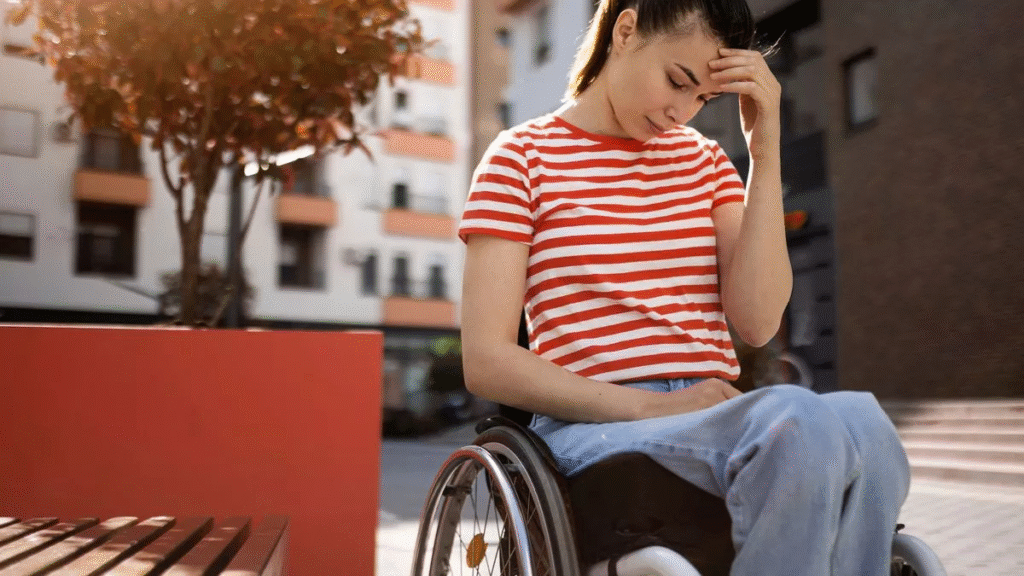The new changes to Personal Independence Payment DWP (PIP) by the UK Government could impact the livelihoods of millions of people. According to a new report from the Resolution Foundation, if the Labor Party implements its new reform plan, more than 10 lakh people will lose their PIP benefits. This change will be the biggest blow to people who are already facing financial struggle.
What is PIP and how does it work?
Personal Independence Payment (PIP) is a financial aid available to people who are facing a long-term health condition or disability. This benefit does not depend on whether you are employed or not, but on your health and the difficulty you show in performing daily tasks.
PIP is given in two parts:
Daily Living Component – to help with daily tasks such as cooking, changing clothes, taking medicine, etc.
Mobility Component – this is given if you have difficulty walking.
Each component has two rates:

- Standard Rate
- Enhanced Rate
Currently:
- The standard rate for the Daily Living Component is £72.65 per week
- The enhanced rate is £110.40 per week
- This money comes directly into your bank account and is tax-free.
What changes are happening in the new rules?
Under the Labour Party’s new proposals, the daily living component of PIP will only be available if a person gets at least 4 points in daily activities. This assessment is made through an official assessment by the DWP.
Daily living activities include:
- Cooking and eating food
- Putting on and taking off clothes
- Bathing and cleaning work
- Taking medication and taking care of it on time
If a person has a lot of difficulty in doing these tasks, then only he will get the benefit. And these new rules will not only apply to new applicants, but also to those people whose PIP period will be reviewed again after the end.
This means that if you are still taking PIP but your points are less than the new scale, then you may stop getting benefits.
Who will be most affected?
The Resolution Foundation says the change will hit people living on low incomes the most. Statistically, around 70% of PIP recipients are in the UK’s lowest-income households.
It is estimated that by 2029-30, 800,000 to 1200,000 people will lose £4,200 to £6,300 in benefits per year if the reform is implemented.
Imagine, if a person is receiving £80 PIP benefit every week, they earn around £4,160 per year. If this money stops, how bad will it be for that person’s financial situation.
What do experts say?
Resolution Foundation’s senior economist Louise Murphy says:
“This is a short-term plan to save money, but its long-term impact can be very harmful for disabled people. Some reforms can help people get back to work, but if people’s support is taken away, how will they survive?”
She also says that people who are not worried about health problems will become the biggest beneficiaries of this reform. But for those who have medical problems, this will be a financial disaster.
The government is doing all this because it has to save the budget and meet fiscal rules, but there is no plan to find a long-term solution or to improve the disability support system.
What should you do if you are taking PIP?

If you are taking PIP now or you are going to apply in the future, then take these steps:
- Understand the new rules
- It is important to understand what the point system is for every daily living task.
- Review your current PIP assessment.
- Take advice
If you feel that you will no longer be eligible after the new rules, contact Citizens Advice or a disability rights group.
Keep documents ready
It will be helpful to keep medical files related to your health condition, doctor’s certificate, and daily struggles written down.
Know the right to appeal
If your PIP is stopped, you have full right to appeal. Appeals are successful in many cases if the right documents are available.
Finally
PIP reform is such an issue that will directly affect the lives of millions of people. While on one hand the Government is saving the budget, on the other hand it is becoming a huge blow for the disabled and people living in financial struggle.
If you or someone from your family is getting PIP, then it is important to be aware of the new rules. Understand today itself, make a plan and take help if needed. This is the money that is your right, you have full right to take it.
FAQs
Q1. What is PIP and who gets it?
A: Personal Independence Payment (PIP) is a benefit given to people with long-term health conditions or disabilities to help with extra costs.
Q2. What changes are being proposed to PIP?
A: The government is planning to reform how PIP is awarded, focusing more on a person’s ability to perform daily tasks rather than their medical diagnosis alone.
Q3. How much could someone lose under the new rules?
A: Some claimants may lose up to £6,300 per year if they no longer meet the updated eligibility criteria.
Q4. Why are these changes being introduced?
A: The changes aim to reduce spending on disability benefits and ensure that only those with the highest needs receive support.
Q5. Who will be most affected by the cuts?
A: People with mental health issues or conditions that are less physically visible may be most at risk of losing their PIP payments.








